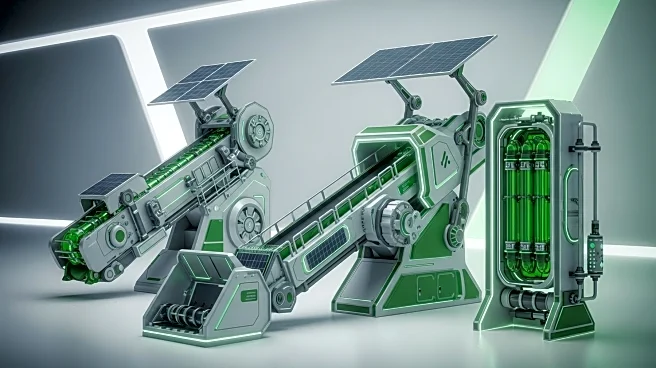What is the story about?
What's Happening?
McEwen Copper Inc. has released a feasibility study for its Los Azules copper project in San Juan, Argentina, highlighting the potential use of innovative technologies. The study suggests employing Nuton® leaching, trolley assist haulage, in-pit crushing and conveying, and battery-electric vehicles. The project is designed to be a long-life, low-cost producer of high-purity copper cathodes, with a 21-year mine life and an average annual production of 148,200 tons. The project aims to reduce its environmental footprint by using renewable power and minimizing water usage, with plans to achieve carbon-neutral status by 2038. The study also mentions potential collaborations for financing and infrastructure development.
Why It's Important?
The adoption of new technologies at Los Azules could significantly impact the mining industry by setting a precedent for environmentally sustainable practices. The project's focus on reducing carbon emissions and water usage aligns with global efforts to combat climate change. If successful, it could influence other mining operations to adopt similar technologies, potentially leading to a broader industry shift towards sustainability. The project's economic viability, coupled with its environmental goals, positions it as a potential leader in responsible copper production, crucial for the global energy transition.
What's Next?
McEwen Copper plans to continue developing electrification strategies and is analyzing the timing for implementing new technologies. The company is also exploring financing options with major equipment manufacturers like Komatsu and Sandvik. Construction is expected to start in 2026, with the first copper production anticipated by 2030. The project's progress will be closely watched by industry stakeholders and environmental groups, as it could serve as a model for future mining projects.















